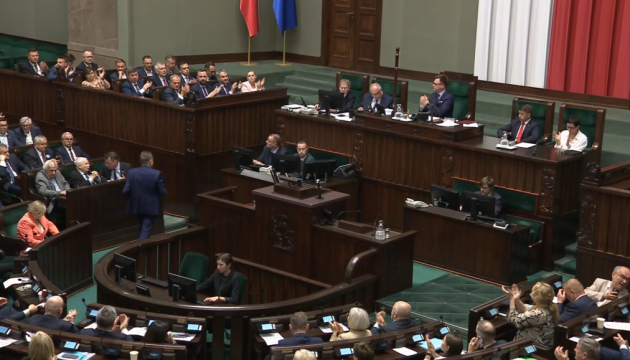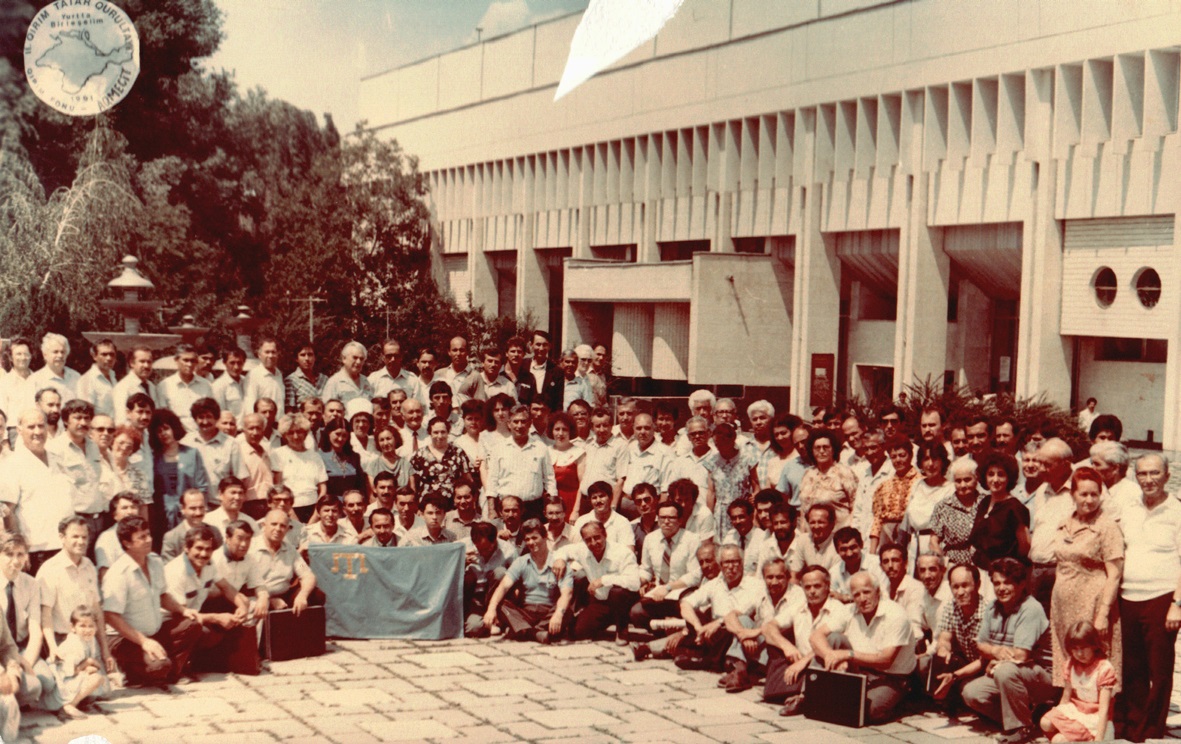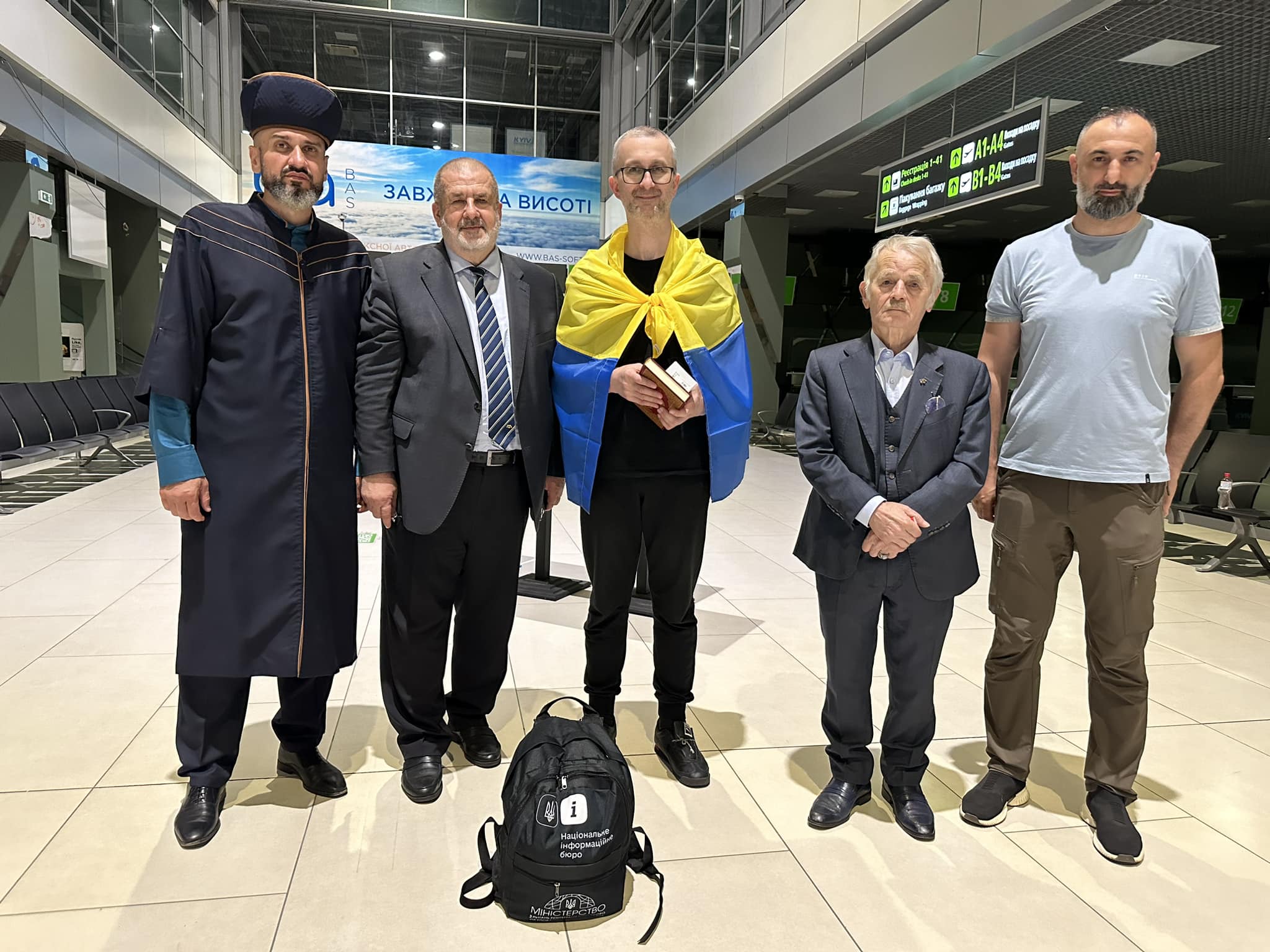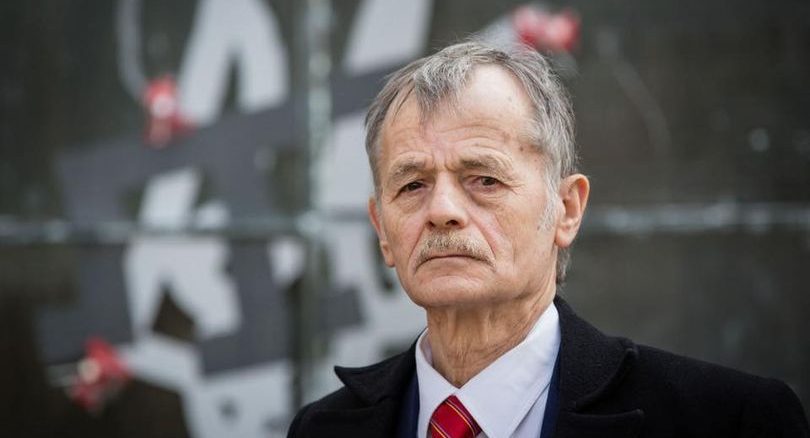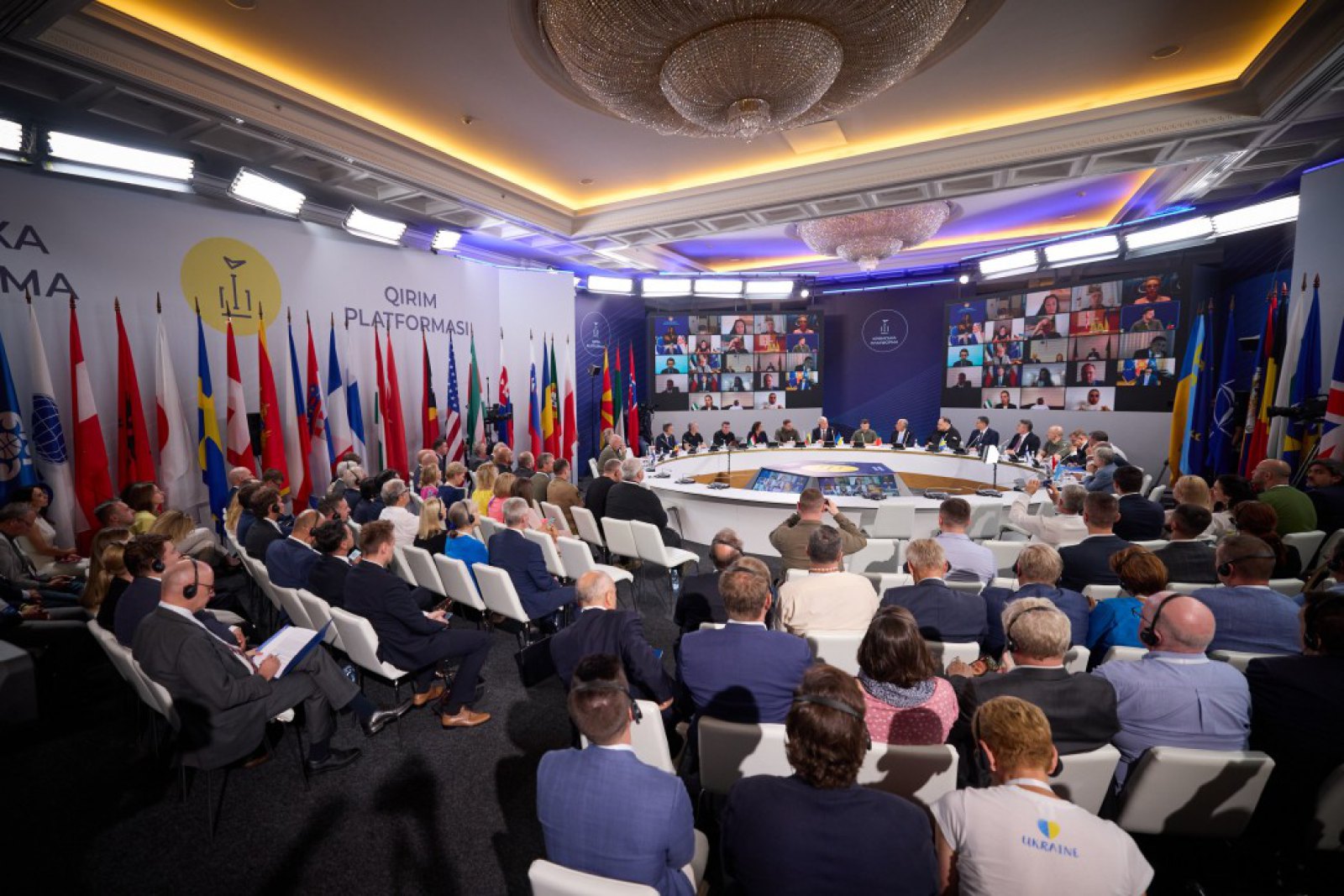Report of MP of Ukraine Mustafa Jemilev at Summit in Vilnius
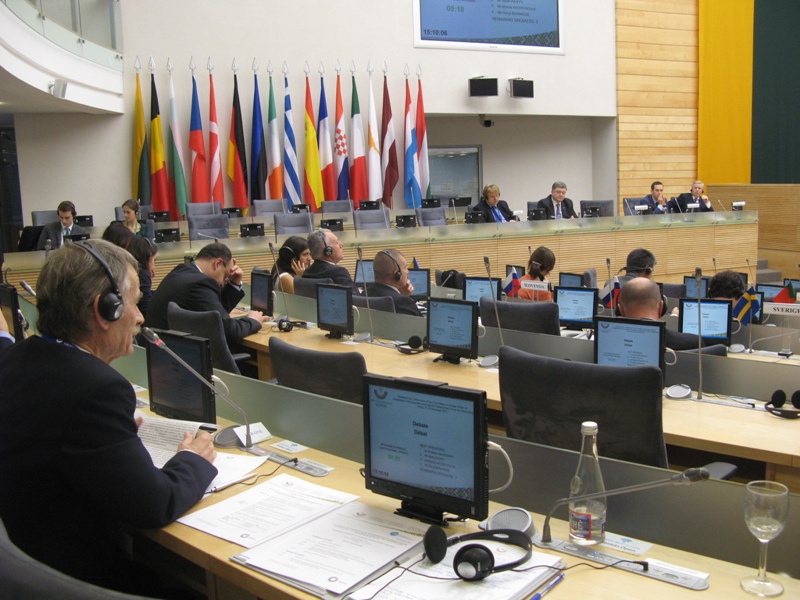
The Parliamentary Forum for Democracy
Lithuania, Vilnius, November 28, 2013
Dear Mr Chairman, dear ladies and gentlemen
The National convention of the Crimean Tatars (Qurultay) entitled my to speak here not only as the MP of Ukraine, but also on behalf of the whole Crimean Tatar people – indigenous people of the Crimean peninsular that was deported from their territory in 1944 and was subjected the genocide and then during the decades fought using the democratic and non-violence methods to return to their homeland and restoration of their rights. I will have to speak shor due to the time limit.
The Crimean Tatar national movement was one of the most scaled one among the democratic movements in the Soviet Union. It became one of the powerful chains of the all-Soviet human rights advocacy movement and made its contribution to the sacred task to destroy the communist regime and collapse of the Soviet empire. We were not very optimistic and didn’t count that the empire will collapse during our lifespan. Our main task was to achieve the democratization of the society and the state that in its turn had to ensure the just solution of numerous problems, including the return of the Crimean Tatars to their homeland and restoration of their national-territorial autonomy. However, the events developed too dramatically and the empire supported by terror and violence for 74 years collapsed quite easily and almost without bloody battles.
Nor every post Soviet state was ready to freedom and democracy. The power in many new states was seized by the former Soviet functionary in other words those who not only tried to achieve the democracy and independence of their people, but on the contrary, executed the orders of their chiefs from Moscow and directly took part in suppression of the democratic movements. That is why, if some post Soviet states, such as Baltic states quickly reached such level to become the members of the EU and NATO, in other states the regimes were established that didn’t differ much from the Soviet one.
Ukraine was one of those regions of the Soviet Union where the movement for the freedom and independence was quite powerful. Despite the fact that the population of Ukraine represented only 22% of the population of the Soviet Union, 45% of all political prisoners in the USSR were Ukrainians. Nevertheless, there are many factors preventing and hampering the process of the democratization and European integration of Ukraine. The most significant and determining among those factors is the influence of the large neighbor country on its economics and politics. Today Ukraine takes some middle position between the democratic and totalitarian post Soviet countries. The future of Ukraine depends on our activity of the defense of our democratic freedoms and the level of support that the European structures could provide to Ukraine.
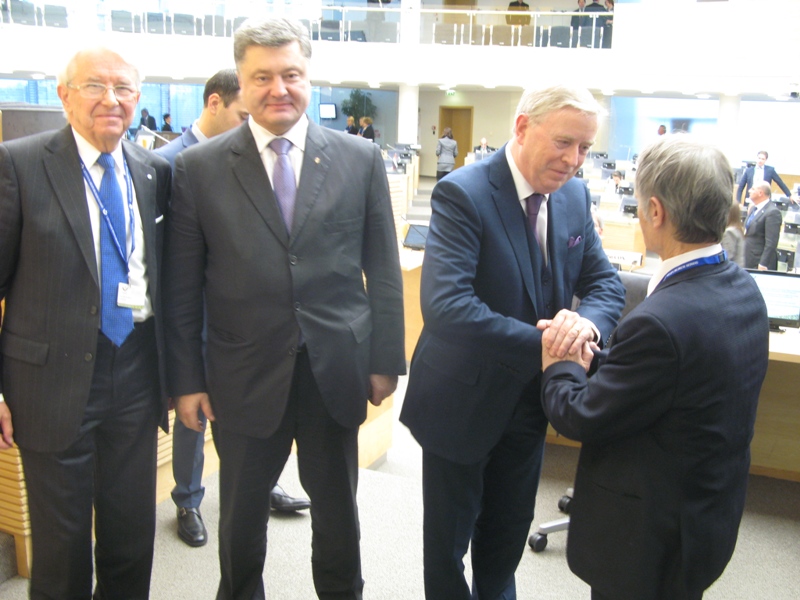
The considerable number of the Crimean Tatars during perestroika and first years of independence of Ukraine could return to Crimea from the exile, but faced the wild Russian chauvinism. The survey also testifies to the level of chauvinism and morals of the society. Thus, in accordance to the results of the survey published in spring this year, 84% of Crimean population still consider one of the gravest criminals of the 20th century Stalin the great state figure and justify all his repressions. The corresponding propaganda is curried by the Russian speaking Mass Media.
Despite the fact that the Crimean Tatars were the most organized political force in Crimea opposing the pro-Russian separatism and defended the integrity of Ukraine, the authorities took no serious steps to defend their legal rights. They still remain the most discriminated part of the population. Despite our efforts the law of Ukraine on the restoration of the collective rights of the people has not been adopted yet, though, many post-communist countries where the deportations on the ethnic grounds were committed adopted such laws long ago.
Though, today the Crimean Tatars represent about 14% of the population of the autonomy, their number in state bodies do not exceed 2-3 %. The constitutional norm that guarantees the right to education in native language for all nationalities almost does not work for the Crimean Tatars. Due to the lack of schools with education in the native language more than 90% of the Crimean Tatar children have to attend the Russian speaking schools. Considering that for about half century of keeping in the places of exile the Crimean Tatar language was almost prohibited the people face the threat of complete assimilation and vanishing of the Crimean Tatar nation.
The Crimean Tatars were deprived of the equal rights and privatization of land, because in compliance with the Land Code of Ukraine the land was allotted to the private ownership mainly to the members of the collective farms in the territory if Ukraine. More than 100 thousands of Crimean Tatars couldn’t return to their homeland and have to live in the places of exile.
Such attitude of the authorities to the Crimean Tatars could be also explained by the fact that they try to adapt to the existing authorities. The overwhelming majority of them traditionally support the democratic forces of Ukraine in all the elections in the territory of Ukraine in compliance with the recommendations of their National convention. According to the analytical reports of SBU of Ukraine the Crimean Tatars and their representative body – the Mejlis of the Crimean Tatar People considered the main organized political force opposing the present authorities in Crimea. That is why it develops the measures aimed at weakening the influence of the Mejlis and splitting the Crimean Tatars. The similar services of the neighbor state consider the Crimean Tatars as one of the main obstacles to the implementation of their strategic interests in Crimea. That is why they conduct the same activity against the Crimean Tatars and the Mejlis of the Crimean Tatar People.
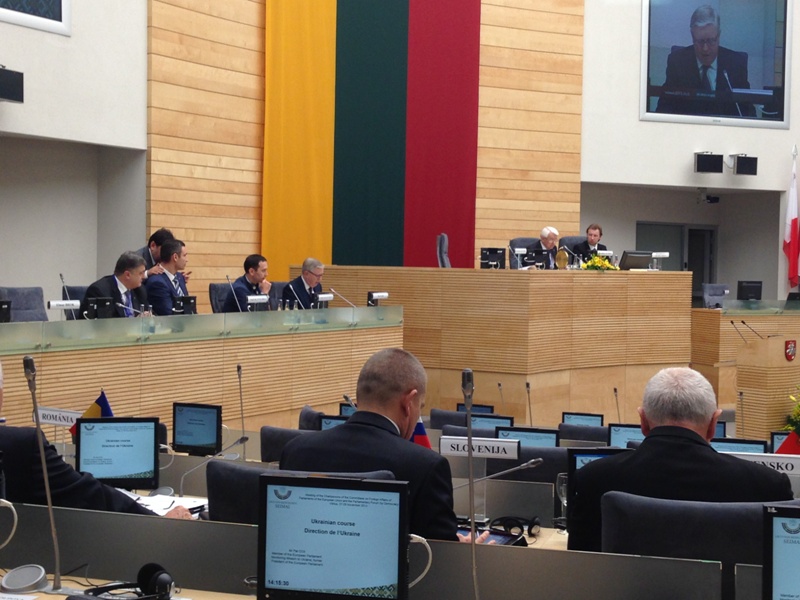
Three years ago we made suggestion to convene the International conference to consider the ways of the restoration of the rights of the Crimean Tatar people and provide the conflict-free solution of the deportees’ problem. We are grateful to the OSCE and the EU for he support of this initiative and measures taken with this regard. On September 19, 2013, the EU Commissioner for enlargement Mr Stefan Fule made proposition to convene this conference in Crimea before the 70th anniversary of the deportation of the Crimean Tatar people, in other words before May 18, 2014. However, the Ukrainian authorities give no certain answer to this proposal.
The ratification of the EU – Ukraine Association Agreement could open the way to the civilized solution of numerous problems, including the solution of the problems of the protection of the rights of small ethnic groups in compliance with the European standards. However, we saw no will of the Ukrainian authorities in this respect. They yielded easily to the blackmailing of the neighbor country.
Three days ago Ukraine commemorated the 80th anniversary of holodomor that resulted in the death of 5 million of Ukrainians. Many years passed since these events, but imagine the pile of 5 million bodies including at least 1,5 – 2 million dead children. The main goal of this terrific crime was destroying the opposition of the Ukrainians to the collectivization, people’s aspiration to their economic and political independence or “break spine of the Ukrainian nationalism” as they say in Kremlin. Today the Kremlin rulers try to preserve they influence in the post-Soviet territory using blackmailing and economic sanctions and try to close the way for Ukraine to the European community of nations.
In these conditions we call the parliaments of all countries and international organizations to apply all their efforts in order to neutralize the actions of the neighbor country and provide the utmost support to the integration of Ukraine into the European community.
Thank you for your attention
